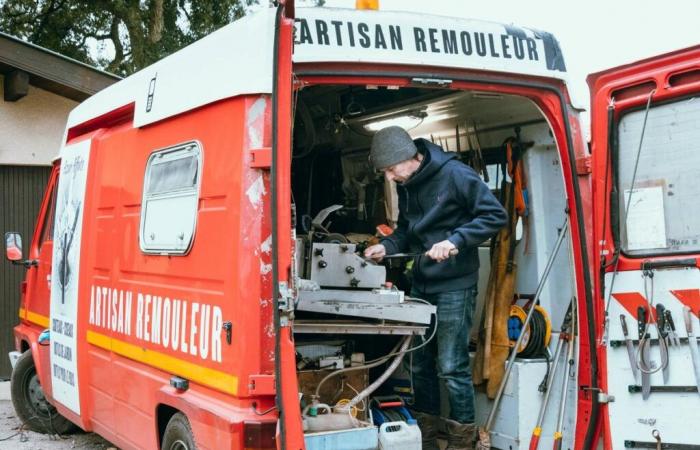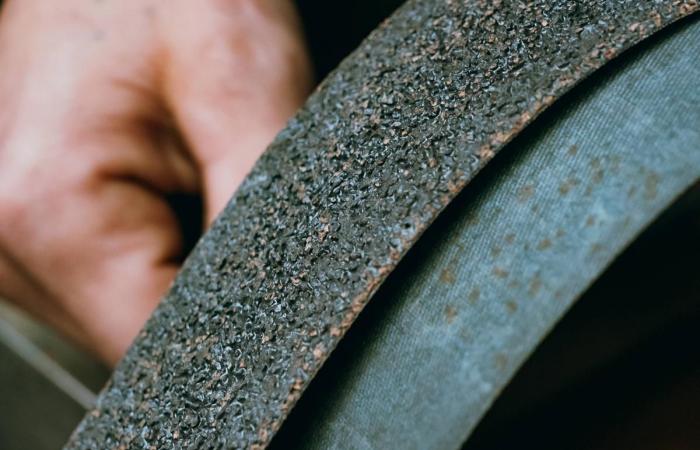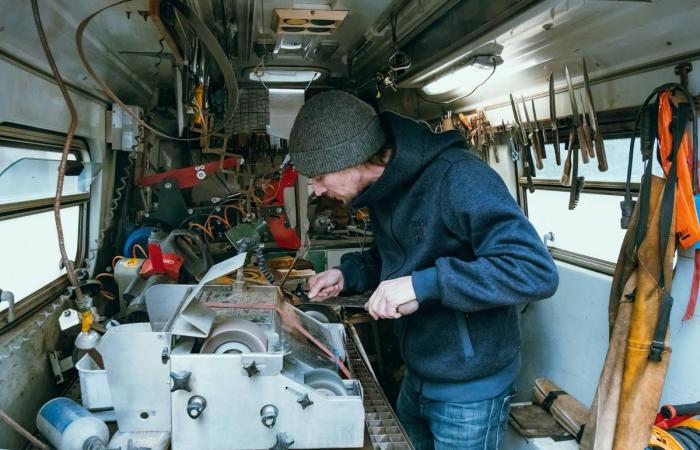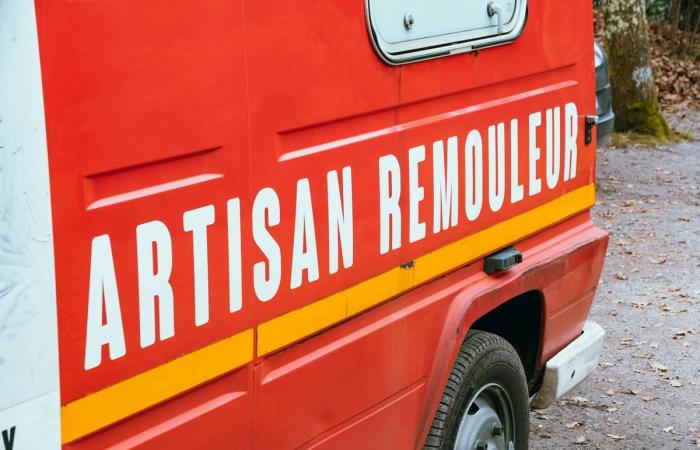Ewhat if, among the good resolutions that everyone can make in these first days of a new year, we decided to take care of our blades? During family Christmas and New Year's Eve meals, having difficulty cutting a poultry – because of a poorly sharpened knife – is in fact one of the subjects likely to trigger the always acerbic comment from a guest that one has yet stored at the end of the table.
“It is certain that not everyone has the reflex to say that a knife can be repaired, maintained, and that it will be better once it has passed into the hands of a grinder” , pleads Julien Delamotte.
Depending on the work to be done, the blade of a knife is sharpened, to reaffirm its edge, or re-ground, for a more significant renovation.
Amaury Dollez
Under the name Azur sharpe, he has been carrying out this activity for five years, during five markets offered in towns on the south coast of Landes and a weekly meeting in the parking lot of a butcher's shop. Starting 2025 with a bang seems easy, at a price that leaves you wondering. “A small blade costs 3 euros… But too often people prefer to throw away a knife, generate waste and buy another. »
Master T35
With its red bodywork, its yellow stripe and its white roof topped with rotating lights, the Renault Master T35 behind which this original Norman, now 37 years old, lugs around his grindstones and tools hardly goes unnoticed. “He was taken out of the fire department. We have 177,000 kilometers on the odometer, with a petrol engine,” confides its owner.
This former emergency vehicle, and more or less everything it contains, Julien Delamotte took it from Patrick Lujan, a grinder from Tercis-les-Bains who has now retired. “I saw his truck in Magescq. I came to sharpen a small penknife for him and we started talking. »
Amaury Dollez
The grit of the sandpaper strips depends on the job being done.
Julien Delamotte was then a cook, after arriving on the beaches of Landes in 2010, “for a fortnight's vacation which turned into a season”. Learning that the wheels of one of the last traveling grinders in the Landes were going to stop turning prompted him to position himself as successor. “I was already sharpening the blades of my own knives and tools. This comes to me from my studies: a CAP-BEP in the wood industry and sawmilling. »
The nuances of the grains
The taste for steel and the possibility of exercising a profession in accordance with his way of seeing life had finally convinced Julien Delamotte to take the wheel of this truck with an interior worthy of a workshop.
Amaury Dollez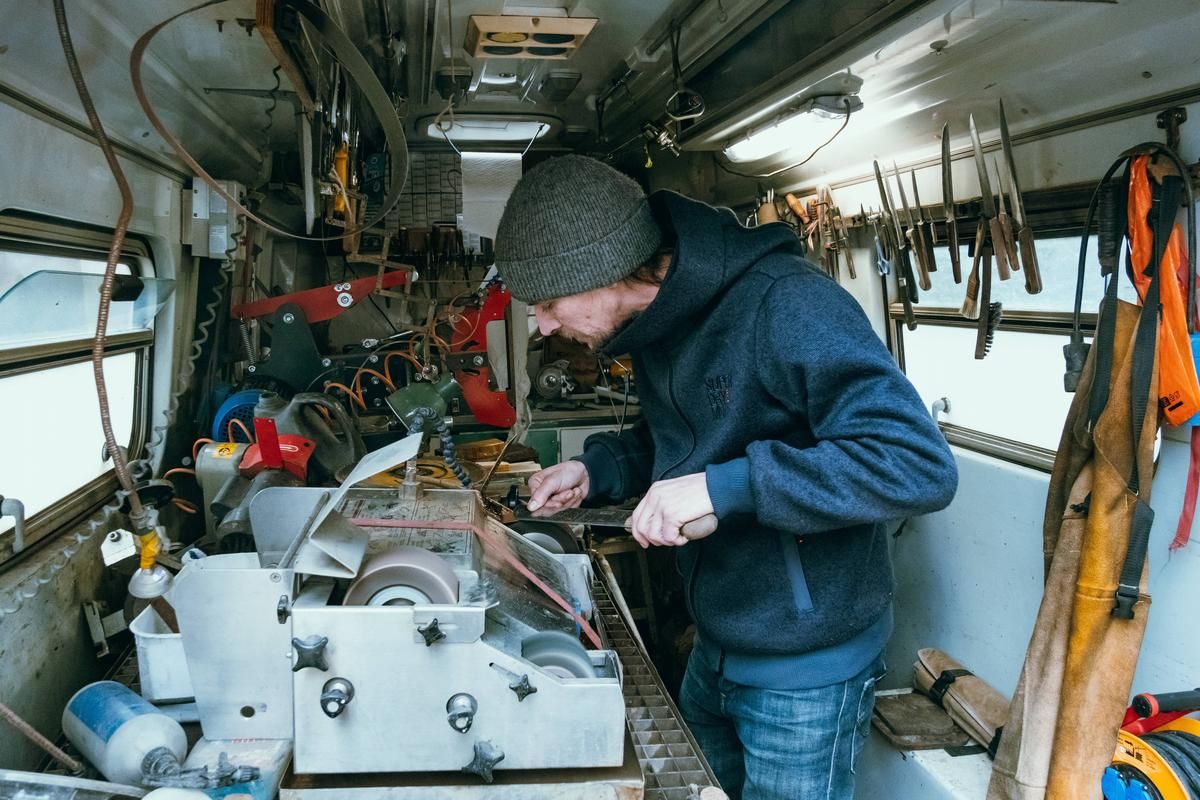
Water, in a closed circuit, flows over the belts driven by the grinding wheels responsible for restoring sharpness to the blades of knives and tools.
“Rémouleur, it comes from emouleur, which refers to the grinding wheel that we use to work the profile of a knife. » At the rear of the vehicle, the water flows “in a closed circuit, to avoid consumption” over strips of abrasive paper driven by the grinding wheel motors. In order to find the original cuts of the blades offered to him, the craftsman relies on varying shades of grain: “On this one, there are small pieces of cork. It's for finishing. »
Along the length of the truck and one of its rear doors, magnetic strips hang a multitude of blades. Each has a specific name. A story. An owner. Julien Delamotte's work is never completely the same. “I must be half individuals and half professionals. »
“Too often, people prefer to throw away a knife, generate waste and buy another”
If certain trades are expected, “butchers, charcutiers, restaurateurs”, others appear more surprising. “Seamstresses, hairdressers” call on the expertise of the grinder to maintain their scissors. Fans of “killing pigs” or cutting fat ducks as a family are among its winter faithful.
“I also have hunting associations who bring me their knives, and gardeners their tools: hedge trimmers, chainsaws. » The blade of one of them once “gave a kiss to (the) left hand” of Julien Delamotte. The suture is worth a knighthood for him.
Amaury Dollez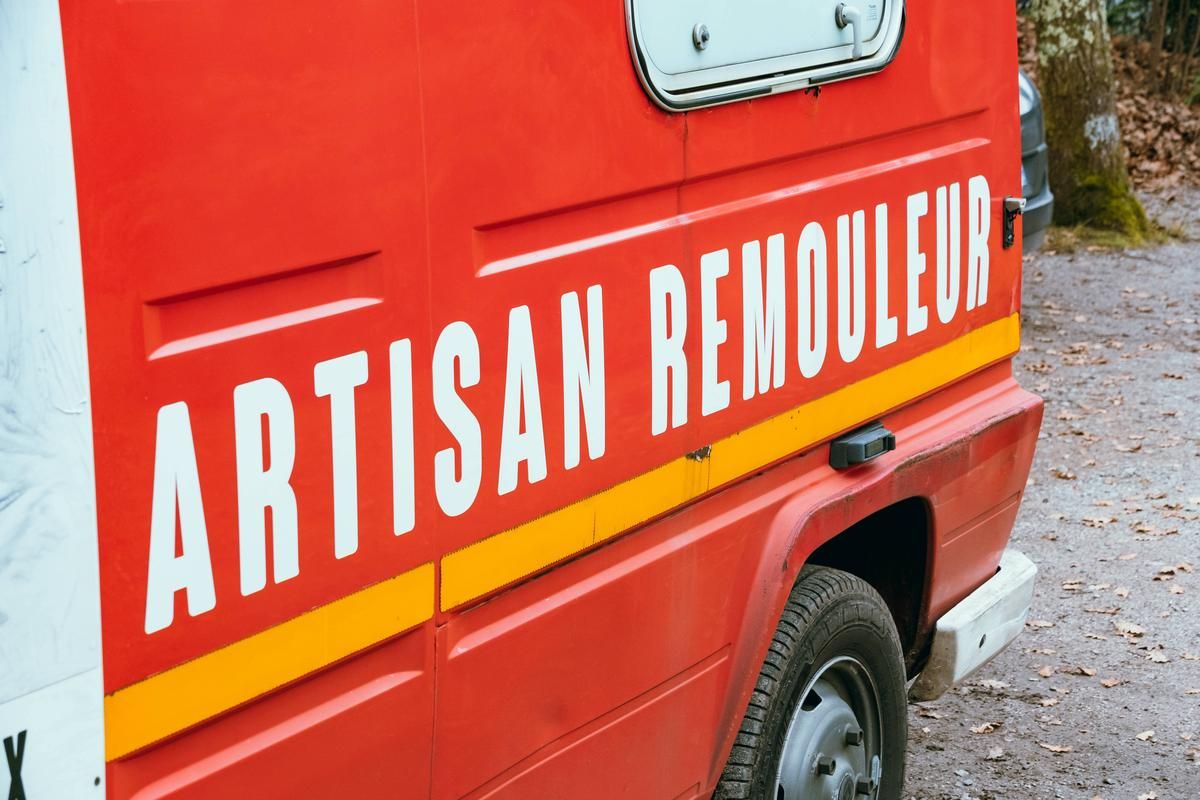
The Azur sharpe truck is a former emergency vehicle used by the fire brigade.

